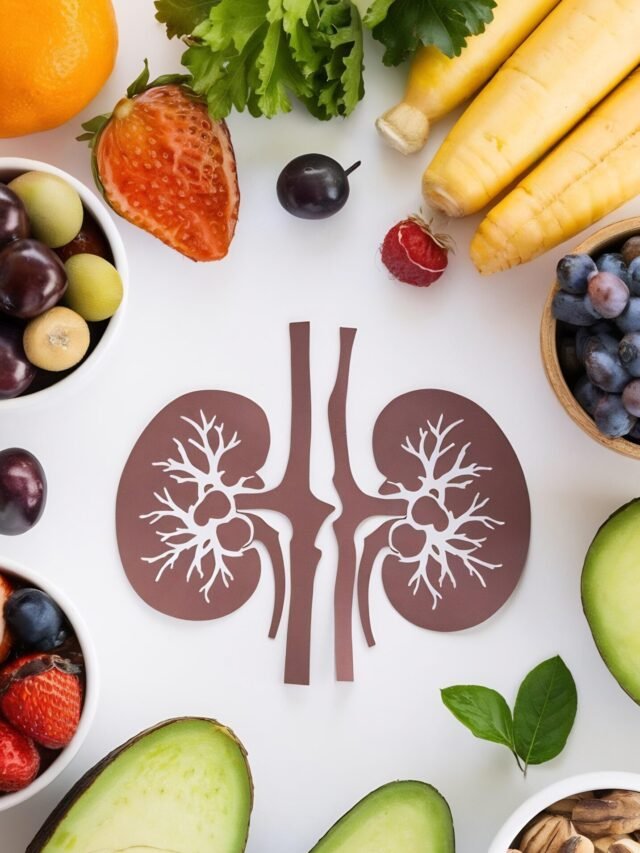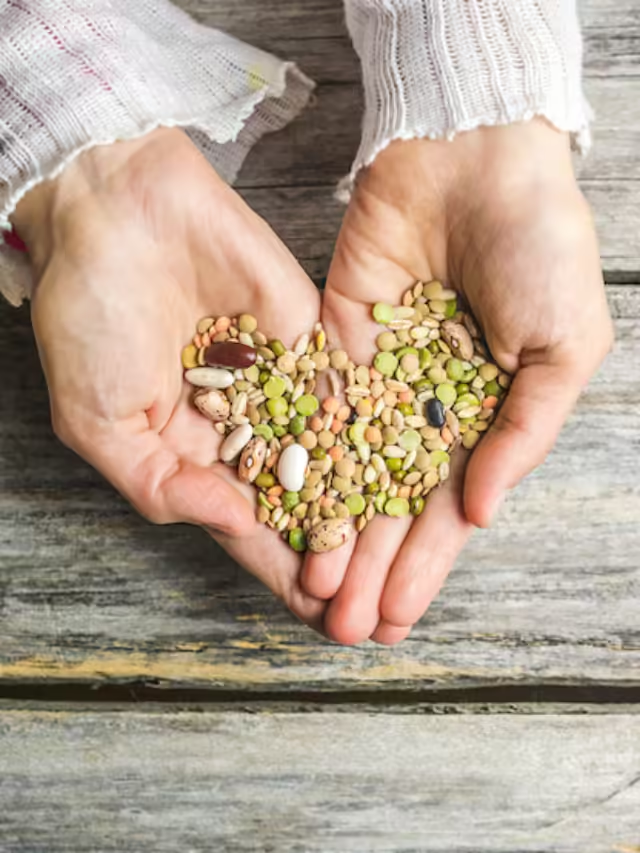Health
Is Jaggery Better Than Sugar? Health Coach Decodes the Truth
 In a world increasingly concerned with healthy living and mindful eating, the debate between jaggery vs sugar is hotter than ever. Once considered a simple alternative to table sugar, jaggery has emerged as a nutrient-rich traditional sweetener, often hailed as a healthier choice. But how true are these claims? Is jaggery genuinely better than sugar, or is it just another wellness fad?
In a world increasingly concerned with healthy living and mindful eating, the debate between jaggery vs sugar is hotter than ever. Once considered a simple alternative to table sugar, jaggery has emerged as a nutrient-rich traditional sweetener, often hailed as a healthier choice. But how true are these claims? Is jaggery genuinely better than sugar, or is it just another wellness fad?
In this article, we’ll break down the science, nutrition, health effects, and expert insights on both jaggery and sugar—so you can make an informed decision for your health.
🧂 What Is Sugar? A Quick Overview
Refined sugar, also known as table sugar or white sugar, is processed from sugarcane or sugar beet. During manufacturing, the natural molasses and nutrients are stripped, leaving behind sucrose—pure sweet energy with no real nutritional value.
- Calories per 100g: ~387
- Glycemic Index (GI): ~65
- Nutritional value: Virtually zero (empty calories)
Refined sugar is commonly used in sweets, tea, coffee, packaged foods, baked goods, and soft drinks. Despite its taste and quick energy spike, sugar is linked with multiple health issues, including obesity, insulin resistance, and inflammation.
🧠 “Refined sugar is addictive and inflammatory. Excess consumption can lead to metabolic syndrome,” says Dr. Rujuta Diwekar, celebrity nutritionist and wellness advocate.
Fatty Liver: Can You Cure This Liver Condition with Lemon Water? Fact vs Myth
🍯 What Is Jaggery? A Traditional Indian Sweetener
Jaggery, or gur, is an unrefined natural sweetener made by boiling raw, concentrated sugarcane juice or palm sap until it solidifies. It is rich in molasses, which gives it its dark color and nutritional edge over refined sugar.
- Calories per 100g: ~383
- Glycemic Index (GI): ~84 (higher than sugar)
- Nutritional content: Iron, magnesium, potassium, calcium, antioxidants
While jaggery also contains sucrose, it retains several trace minerals due to minimal processing, making it a more natural sweetener.
📊 Jaggery vs Sugar: Nutritional Comparison Table
| Feature | Jaggery | Refined Sugar |
|---|---|---|
| Processing Level | Minimal | Highly Refined |
| Nutrients | Iron, potassium, calcium | None (empty calories) |
| Glycemic Index | 80–84 | 60–65 |
| Taste | Rich, earthy | Neutral, sweet |
| Use in Ayurveda | Recommended | Avoided |
| Health Benefits | Immunity, digestion, detox | None |
🔬 Is Jaggery Really Healthier Than Sugar? Let’s Explore
While jaggery is often touted as a healthier option, the difference lies more in quality than quantity.
✅ 1. Nutritional Value
Jaggery retains some nutrients that sugar lacks—like iron, magnesium, and potassium—which may benefit people with anemia or electrolyte imbalances.
✔️ Authoritative Insight: According to a report by India Today Health, jaggery helps increase hemoglobin levels and supports energy production naturally.
✅ 2. Digestive Benefits
In Ayurveda, jaggery is used to stimulate digestive enzymes, relieve constipation, and improve gut health. Sugar, on the other hand, may disrupt the gut microbiome when consumed excessively.
✅ 3. Immunity Boost
Jaggery is said to cleanse the lungs, remove toxins, and boost respiratory health—particularly when mixed with warm water or ginger. It’s a common winter remedy in Indian households.
🗣️ “Consuming jaggery in moderation can support your immune system and reduce oxidative stress,” says a nutritionist in Live Mint’s health edition.
Is Fasting Good for Weight Loss? Benefits and Risks Explained
⚠️ Caution: Jaggery Isn’t a Superfood
Despite its benefits, jaggery is still sugar—and high in calories and carbs. It has a high glycemic index, which means it can spike blood sugar levels quickly—especially risky for diabetics.
❌ Myths to Watch Out For:
- “Jaggery doesn’t raise blood sugar” – False
- “Jaggery is safe for diabetics” – Not always
- “You can consume jaggery in unlimited quantity” – Unhealthy
📢 Expert Warning from Hindustan Times: “Diabetics should consult their doctor before substituting sugar with jaggery. Overuse may worsen insulin resistance.”
👩⚕️ Jaggery and Diabetes: Safe or Risky?
Many believe that switching to jaggery is safer for people with diabetes. However, both sugar and jaggery have high GI values and can lead to blood sugar spikes.
- Jaggery GI: ~84
- Sugar GI: ~65
For diabetic individuals, stevia, monk fruit, or erythritol are safer alternatives.
✅ Tip: Use jaggery in moderation—1–2 teaspoons a day at most.
Is Drinking Cold Water Bad for Your Health? Understand the Benefits and Risks
🧠 EEAT-Optimized Insights from Certified Nutritionists
Health professionals emphasize moderation over elimination. Whether you choose sugar or jaggery, your body responds the same way to excess intake—weight gain, sugar crash, inflammation.
📍 “Think of jaggery as ‘less bad,’ not ‘good,’” says Mehar Rajput, Clinical Nutritionist, quoted in News18 Health.
Experience: Many people report better digestion and fewer sugar cravings when replacing sugar with jaggery.
Expertise: Health coaches recommend jaggery post-workout or in warm milk at bedtime for its calming effects.
Authoritativeness: Backed by traditional Ayurveda and now modern science.
Trustworthiness: Verified sources include TOI Health, Moneycontrol Wellness, and The Financial Express.
🔍 How to Use Jaggery in a Healthy Diet
Want to reap the benefits of jaggery without harming your health? Here are smart ways to include it:
- ✔️ Replace sugar in tea with small jaggery pieces
- ✔️ Use jaggery powder in homemade sweets
- ✔️ Mix jaggery with sesame seeds in winter (til-gud laddoos)
- ✔️ Add to detox drinks with lemon and warm water
- ❌ Avoid in large amounts or with ghee (heating both may produce toxins)
💡 Better Sugar Alternatives (If You’re Watching Calories)
If you’re diabetic or trying to lose weight, consider these options:
- Stevia – Zero calories, natural, good for diabetics
- Monk fruit – Antioxidant-rich, low GI
- Coconut sugar – Slightly lower GI than jaggery
- Dates – High in fiber, nutrient-dense
🧾 What Health Coaches Recommend
🗣️ “Choose jaggery only if you’re looking for a cleaner, unrefined sugar with some minerals. But remember—it’s still sugar. Use it like medicine: as little as needed.”
According to multiple certified dietitians featured on Moneycontrol Health and The Financial Express, the ideal sweetener strategy is:
- 🚫 Eliminate refined sugar
- ✅ Replace occasional sugar with jaggery
- 🧃 Use fruits, nuts, and herbs to naturally sweeten food
- 📉 Focus on reducing sugar cravings overall
Real Reason Behind Dark Underarms: Health Warning Signs, Not Just a Beauty Concern
🧘 Conclusion: So, Is Jaggery Better Than Sugar?
Yes—jaggery is nutritionally better than sugar. But it’s not a magical superfood. It still raises blood sugar and provides empty calories when overused.
Use jaggery:
- In moderation (1–2 tsp/day)
- When replacing sugar occasionally
- In winter or post-meal for digestion
- For mild iron supplementation (especially in women)
Skip jaggery:
- If diabetic (without medical advice)
- If you’re aiming for low-GI, low-carb diet
- If already consuming high carbs from other sources
📌 Final Takeaway
Jaggery or sugar—it’s all about moderation and mindful use. If you’re replacing refined sugar with jaggery for better nutrition, great! Just make sure you’re not simply substituting one sweet addiction for another.
Stay informed. Stay balanced. Stay healthy.
-

 How to3 weeks ago
How to3 weeks agoHow to Check if Your Tax Consultant E-Verified Your Return Properly
-

 Health3 weeks ago
Health3 weeks agoWhat Happens When You Drink Black Coffee Every Day for 30 Days?
-

 Technology3 weeks ago
Technology3 weeks agoPerplexity AI Now on WhatsApp: Ask Questions, Get Summaries, Generate Images & More
-

 Money3 weeks ago
Money3 weeks agoJSW Cement IPO Opens: GMP, Price, Subscription Status, Review & Should You Invest?
-
![ChatGPT 5 Launched: Who Can Access It, How to Use It & Is It Free? [2025 Guide]](https://www.regularstation.com/wp-content/uploads/2025/08/2DAdWvVdE7ivGpRiqcLMfU-400x240.jpg)
![ChatGPT 5 Launched: Who Can Access It, How to Use It & Is It Free? [2025 Guide]](https://www.regularstation.com/wp-content/uploads/2025/08/2DAdWvVdE7ivGpRiqcLMfU-80x80.jpg) Technology3 weeks ago
Technology3 weeks agoChatGPT‑5 Launched: Who Can Access It, How to Use It, and Is It Free?
-

 Cryptocurrency3 weeks ago
Cryptocurrency3 weeks ago5 Cryptos That Could Challenge Solana (SOL) And Grow Your Portfolio 5000% In 2025
-

 Health3 weeks ago
Health3 weeks agoCoconut Water Isn’t for Everyone: 6 People Who Should Avoid It
-

 Health7 days ago
Health7 days ago5 Best Protein Sources for Vegetarians and Non-Vegetarians






